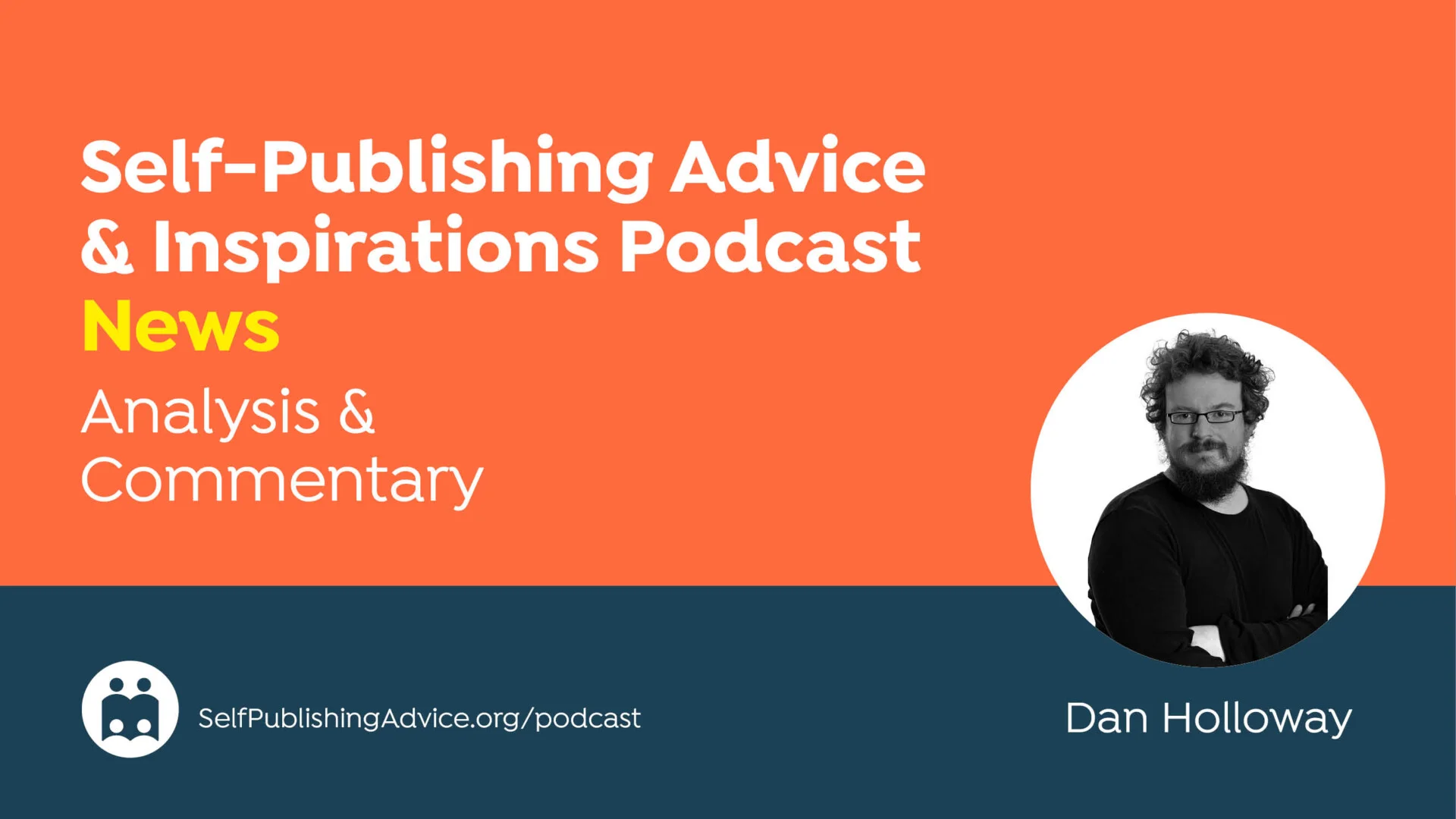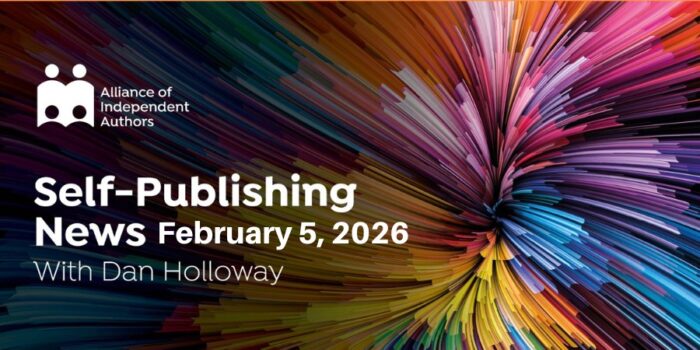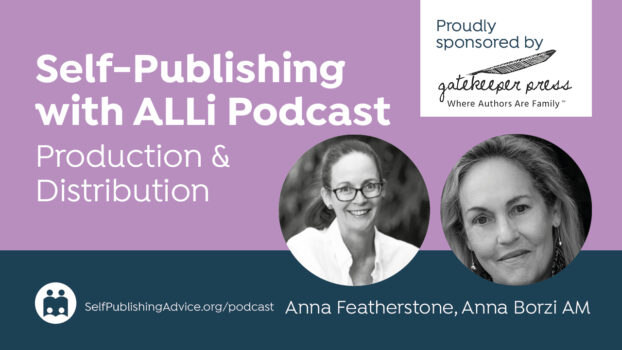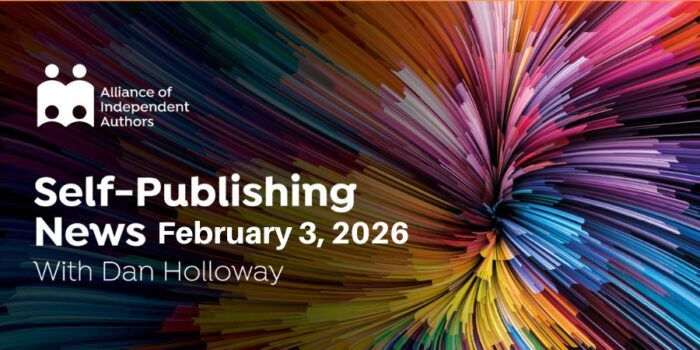This week on ALLi's Self-Publishing News Podcast, Dan Holloway addresses Spotify's claim of paying “tens of millions” to audiobook creators. The Society of Authors and other groups are demanding greater transparency from Spotify regarding these payments. Dan explores the implications of this issue for indie authors and the publishing industry.
This was recorded before the change of terms from Findaway Voices by Spotify and subsequent events, which will be covered in the next podcast.
Find more author advice, tips, and tools at our Self-publishing Author Advice Center, with a huge archive of nearly 2,000 blog posts and a handy search box to find key info on the topic you need.
And, if you haven’t already, we invite you to join our organization and become a self-publishing ally.
Listen to Self-Publishing News: Spotify and Audiobook Creators
Spotify Says It Has Paid Audiobook Creators ‘Tens of Millions' but Society of Authors Calls for Transparency: Self-Publishing News Podcast with Dan Holloway Share on XDon't Miss an #AskALLi Broadcast
Subscribe to our Ask ALLi podcast on iTunes, Stitcher, Player.FM, Overcast, Pocket Casts, or Spotify.
About the Host
Dan Holloway is a novelist, poet, and spoken word artist. He is the MC of the performance arts show The New Libertines, He competed at the National Poetry Slam final at the Royal Albert Hall. His latest collection, The Transparency of Sutures, is available on Kindle.
Read the Transcripts to Self-Publishing News: Spotify and Audiobook Creators
Dan Holloway: Hello and welcome to another Self-Publishing News podcast from here in Oxford where it's a beautiful sunny afternoon that almost feels like spring.
I have just returned from walking through the flooded fields, so what better way to dry out than with what feels like it's been a very busy week in the news, and the main thing that's been in the news this week is audio.
Spotify Announces Audiobook Findings
In particular, it's a week that seems to have focused incredibly much on Spotify. Part of the reason for that is that last week saw Spotify's head honcho, Daniel Ek, give the Q4 earnings talk. Basically, reflections from the top on how the year has gone and what the coming year has in store.
The media obviously likes to jump on that and it's a great chance to look at some of the figures that have come out around the growth of Spotify into audiobooks.
But the main headline, obviously, that people have been talking about with Spotify relates not necessarily to audiobooks, but another form of audio content, which is relevant to us, which is podcasts.
That news is of course, that Joe Rogan has renewed his contract with Spotify, although they no longer have exclusive rights. So, the Joe Rogan Experience will appear elsewhere other than Spotify, and I have noticed people already commenting on the fact that even the Spotify podcast is attracting massive amounts of advertising, internal paid promotion, as well as the Spotify placed adverts. So, it's something; it feels like things are changing in the podcast world.
I mentioned a little while ago that one of the things behind the recent cuts at Spotify has been the feeling that maybe they have sunk too much money into big name celebs and big-name podcasts and not enough into diversification. Let's see if this is the start of a more broadened approach.
Certainly, it's interesting that moving on to audiobooks, obviously this played a big part in Ek's reflection, because this is the first real year that Spotify have been providing audiobooks to their subscribers.
One of the things he was really keen to point out was that people aren't just listening to the bestsellers.
So, one thing we do know is that the most listened to book on Spotify is the autobiography of Britney Spears. We don't know much about other titles at the moment.
One thing that's very interesting that I did see on X is that he has promised that, in March, we will have much more transparency about exactly where the royalties that have gone to creatives have been going.
So, we might get to see a lot more about the individual titles that have been attracting income and what those are and what that income is. At the moment, we don't, and this fact in itself has been in the news.
Society of Authors Calls for Transparency from Spotify
The Society of Authors, amongst many groups, who are still somewhat sceptical around the lack of transparency, and while Spotify have said that it has paid out tens of millions to the publishers of audiobooks, that's as much information as we have at the moment, and that is felt to be not enough.
But the really interesting thing, as I say, that Ek was talking about, and to quote him he says, “I think the biggest surprise has been the type of titles that resonate with consumers. These are not the normal titles that traditionally do well.”
So, he is talking about there being a very broad spectrum of titles that are being listened to, and one of the points that he has made is that the thing that differentiates Spotify from Audible is that, whereas with Audible you get as a subscriber a monthly credit that you can swap for an audiobook of your choice, with Spotify you get 15 hours and you can use those 15 hours however you want. You can listen to one really long book for 15 hours or you can listen to 15 books for one hour each, and the people who put those books out get paid according to the number of hours you listen to.
So he says, he thinks, not only does this model encourage more diversity in its very nature, but also readers are more willing to experiment because they're not worried about, if I use my one credit on this book that I'm not a hundred percent sure about, then that's it for the month, but rather if I spent half an hour on this book and it turns out not to be for me, I just switch it off and never listen to it again and I've still got 14 and a half hours left to spend on something else.
So, it's really interesting to see how the two different models will play out, whether that will lead to more diversity.
What we do know already is that Spotify is the number two provider of audiobook titles behind Audible: it's already overtaken everybody else. So, it is clearly in the process of becoming an enormous player and at some point, will it/won't it overtake Audible? That will be very interesting to see.
The other bit of news around Spotify is the popularity of its daylist, which has seen a 2000% increase in uptake.
Daylist is a personalized playlist that is not just personalized in general for you, but recommends things to you at the time of day when it thinks that you are most likely to be interested in a certain thing.
So, if you wake up in the morning, you want something motivational, then it will pick motivational stuff for you then, or if you like sad things on a Wednesday, it will recommend sad things to you on a Wednesday. So, it's that tailored according to time and a day, and its recommendations include audiobooks as well as music.
So, that's a level of sophistication that it's become clearly very popular with listeners and people seem to be subscribing to Spotify simply to have access to the daylist facility.
Kaya Gerber Book Club Highlights Gen Z’s Love of Books
Moving seamlessly on from titles you wouldn't expect on Spotify, another piece of interesting news this week is the news that the model Kaya Gerber has started a book club. It's called Library Science, and this appeared in a very interesting article in The Guardian, which talks in general about the reading habits of Gen Z, or for those on the other side of the pond, Gen Z.
One of the things that the article is very keen to mention is that these younger readers are not just reading the kind of titles that you would imagine, or that some people would imagine, not, I hope, listeners to this podcast. I would imagine you are all far more sophisticated than to assume that it's just YA fantasy and romance, and maybe a bit of science fiction and thriller, but that actually the younger generation has as eclectic a taste as any other generation, shock horror. It always amazes me that people are so amazed that this is the case.
One of the things that the story talks about is, for example, the growth in popularity of literary fiction. There's discussion of the so-called hot girls, sad girls’ titles, and the types of literary fiction that people are reading of this age group, and the role that influencers are playing in this.
This feeds into a very interesting discussion on why it is that one of the positive things that's in this story is the fact that younger people really love libraries and love getting print books from libraries.
One of the things I'm seeing a lot of online though is a discussion around the fact that a lot of people are saying, oh, younger people like to be pictured with a book more than they like to read a book, and you see this with movements like Dark Academia, for example, which is something that I have been following and find very interesting.
There is certainly a part of BookTok, a part of Instagram, YouTube, that is devoted to this kind of dark academia as aesthetic, and obviously books that are related to dark academia, so things that are set in educational institutions.
The urtext of the dark academic movement is Donna Tartt's The Secret History. More recently titles like R. F. Kuang's Babel, and the thing that has got people really excited in the last few months is the movie Saltburn. There has been a lot of talk about the dark academic aesthetic and how this includes people being pictured in romantic establishments and locations reading books, and are they really reading the books or are they just wanting to be seen reading the books?
This feels like something that we've been talking about for as long as there has been culture. There have been older people saying, it's shocking that younger people don't have any culture at the same time as saying, all these young people have a culture that we disapprove of, and we don't like what they are actually reading.
This feels no different, and I think it's great that people are reading. I'm not so fussed what they're reading, but it is great to see that books and libraries are popular.
AI Legislation Regulates Use of Copyrighted Material
That brings me on very finally to a tiny little bit at the end about AI. I'm squeezing it as far as I can down the list, I'm sure it will come back to the top at some point.
Legislation around AI has been in the news a lot because the European Union's AI Act has been doing the rounds through various bits of the legislative process before it finally gets sealed into law in the spring.
Publishers are very pleased by and large with a lot of elements of it. It does regulate the use of copyright material in large language models, which is a step forward.
There was pushback against industry lobbying, which I think a lot of people didn't expect and are pleased to see has actually happened, which means that there at the very least has to be transparency when very large, generalized artificial intelligence platforms use copyright material, they at least have to say what material they're using.
Likewise, talking about legislation and AI, the House of Lords, which is the upper parliamentary house in the UK, issued a report on large language models.
One of the things that it has highlighted in that is the need for legislation around the use of copyrighted material to train large language models. So, it has called on the government to take action on this.
I do fully intend to read the whole of the report at some point in the very distant future and probably give you the edited highlights thereof. Suffice to say that at the moment, it looks as though there is a bit of a legislative fight back against the tech industry in general.
How far this goes, what the measures that will actually be put in place, and what this means for writers will be, remains to be seen. But I will, of course, keep you updated.
With that, I wish you the very best of weeks, and I look forward to speaking to you again soon. Take care.





